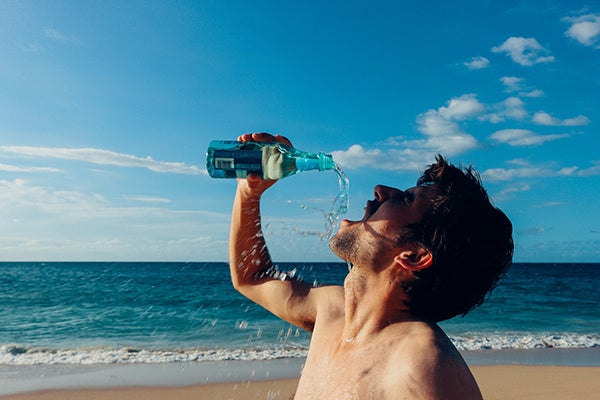April 16, 2018
Can dehydration affect your kidneys? The answer is yes.
About 60-70% of your body weight is made of water, and every part of your body needs it to function properly.
Water and Kidney Health
Water helps:
- Remove wastes from your blood in the form of urine.
- Keep blood vessels open so nutrients can travel freely to your kidneys.
When you’re dehydrated, the body doesn’t perform these functions as well.
Dehydration can occur when you lose too much body water from:
- Diarrhea
- Vomiting
- Sweating
- Increased urine output from conditions like poorly controlled diabetes
Mild dehydration may cause fatigue and impair normal body functions. Frequent mild dehydration may lead to permanent kidney damage over time. Severe dehydration can damage the kidneys more quickly.
Subscribe today!
Join the NKF Blog Newsletter
Get inspirational stories and kidney disease resources delivered to your inbox every month. You'll gain practical insights and expert advice to help you better understand and manage your kidney health no matter where you are on your kidney journey.
Dehydration and Kidney Function
Dehydration can:
- Cause waste and acid build-up in your body.
- Clog kidneys with muscle proteins (myoglobin).
- Contribute to kidney stones and urinary tract infections (UTIs).
Kidney stones are less likely to form when you drink enough water to keep stone-forming crystals from sticking together. Water also helps flush out bacteria and makes antibiotics for urinary tract infections (UTIs) more effective.
Signs You May Be Dehydrated
- Dry or sticky mouth
- Feeling thirsty
- Headaches
- Dark yellow urine
- Feeling tired
- Urinating less frequently
There’s no one-size-fits-all rule for water intake. Your needs depend on age, climate, exercise, pregnancy, breastfeeding, and illness. Ask a healthcare professional how much water is right for you.
If you have kidney failure, follow your healthcare provider’s advice on fluid intake. Learn more about fluid management for kidney disease.



















